Amnesty Slams Execution Of Iranian Bloggers
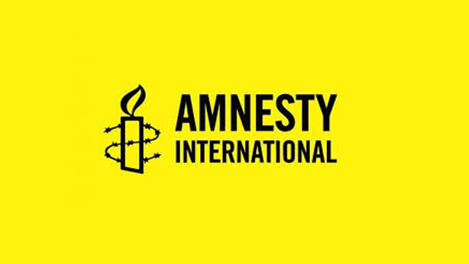
Amnesty International condemned the execution of two Iranian bloggers executed for blasphemy.

Amnesty International condemned the execution of two Iranian bloggers executed for blasphemy.
The human rights body said the brutal act only furthers Iran’s pariah status, the two youths hanged solely for social media posts in a grotesque assault on the right to life and freedom of religion.
Iran’s judiciary news website Mizan reported on Monday that Yousef Mehrdad and Sadrollah Fazeli Zare were executed for blasphemy, insulting Islam, its prophet, and other sanctities.
Mehrad, a father of three, and Fazeli-Zare', the caretaker of his mother, were arrested in May 2020 over blasphemy-related charges after authorities accused them and five others of being members of a Telegram channel titled "Critique of Superstition and Religion."
Members of the group reportedly expressed opinions about Islam and its Prophet Muhammad that were deemed insulting by the Islamic Republic.
“The use of the death penalty for such acts is another nail in the coffin of religious freedom in Iran,” stressed Amnesty.
Norway-based monitoring group the Iran Human Rights Organization (IHR) said on Saturday that the Islamic Republic has carried out at least 42 executions in the past 10 days alone, or one person every six hours. At least 194 people have been executed this year so far.
“Without urgent international action, the Iranian authorities will continue to deploy the death penalty to torment and terrorize the entire population, crush protests and other forms of dissent, and enforce silence and subservience through brute force,” Amnesty said
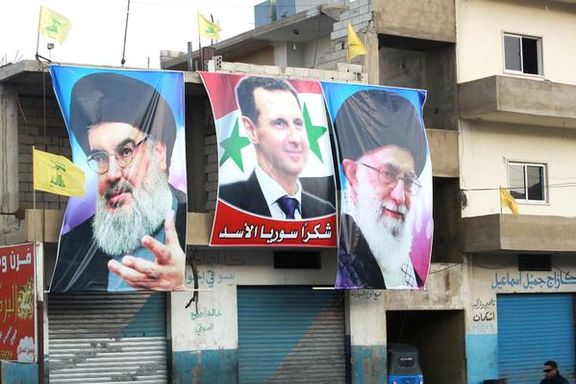
Iranian-backed militia forces in Syria have started removing Islamic Republic's flags from their bases, apparently by the request of the government in Damascus.
The Britain-based Syrian Observatory for Human Rights reported Monday that Tehran-linked militias such as LiwaZainebiyoun and Liwa Fatemiyoun are removing the Iranian flags as well as banners of prominent figures upon a request by Damascus.
The symbols of Iran and its proxies are being removed from the cities of Abu Kamal and Mayadin in Deir ez-Zor governorate and Palmyra in Homs. The banners and flags were replaced with the internationally recognized Syrian flag.
According to the observatory, the development came as part of the Syrian regime's pledge to Arab countries as one of the conditions to rejoin the Arab League, and that Damascus has accepted that Iran-backed militias exit the country. However, the war monitor noted that none of the members of the Iranian-affiliated forces have withdrawn from Syrian territories.
The removal of the flags coincided with Iranian President Ebrahim Raisi's visit to Damascus last week, and the signing of a “long-term strategic comprehensive cooperation” deal in addition to 14 other agreements, and renewing allegiance with groups fighting against Israel.
Official Arab sources have not mentioned any condition put forth for removing. the flags. It is possible however that Iran is trying to keep a lower profile in Syria.
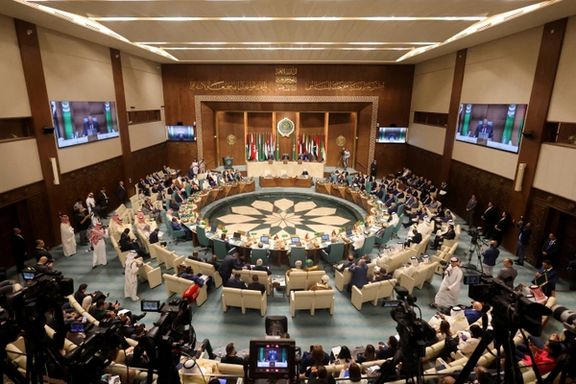
At the same time, it can only be a tactic to avoid frequent Israeli attacks on their bases.
The Arab League readmitted Syria on Sunday after about 13-year-long suspension as President Bashar al-Assad pushes to normalize ties with other Arab nations. Syria had been barred from the organization in 2011 after a brutal government crackdown on anti-Assad protesters, which led to the country’s war.
Foreign ministers from the 22-nation group voted for Syria’s return at a meeting in Cairo ahead of the Arab League summit in Saudi Arabia on May 19.
The Iranian militias removed their flags that were raised on top of buildings in Ayash warehouses in western Deir ez-Zor countryside, concurrent with the arrival of commanders of Iran’s Revolutionary Guards – IRGC -- and Lebanese Hezbollah to Qasem Soleimani camp in the countryside, the observatory said in another report.
The group claimed that a convoy comprised of 12 four-wheel-drive cars of IRGC officers set off from Al-Joura neighborhood on Sunday to Ayash warehouses, where they met with Hezbollah members. “The Iranian militias repositioned and changed their military headquarters in fear of being attacked, following the recent strikes ton their positions,” the observatory claimed.
The restoration of ties with Damascus quickened following the deadly February 6 earthquake in Turkey and Syria, and the Chinese-brokered détente between Saudi Arabia and Iran, which had backed opposing sides in the Syrian conflict.
Emphasizing that the crisis in Syria is not yet over, the Arab League called for resolving the crisis resulting from Syria’s civil war, including the flight of refugees to neighboring countries and drug smuggling across the region.
On Monday, Jordan carried out rare airstrikes on southern Syria, hitting an Iran-linked drugs factory and killing a smuggler allegedly behind big hauls across the two countries' border, local and intelligence sources said.
Almost all of the strikes against Iran-aligned forces in Syria have been carried out by Israel since 2017, which has vowed to prevent the Islamic Republic’s entrenchment in the country. Israeli strikes in recent weeks have seen key Iranian military figures killed from the Revolutionary Guards and the Quds Force.

After two months delay, the Iranian government has finally released inflation data for the previous year, putting it at 45.8 percent.
Neither the Statistical Center of Iran (SCI) nor the Central Bank of Iran (CBI) had released complete reports on the inflation data until Sunday. The SCI has been the only government entity regularly announcing the inflation rate in the past four years.
The CBI announced late March that the annual inflation rate stood at 46.5 percent but did not mention the point-to-point inflation of the last month of the Iranian year.
Although the official inflation rate announced by the authorities is usually less than what it seems in the market, even 46.5 percent inflation is among the highest in Iran in more than 30 years.
According to the SCI, the reason behind the delay is the process of changing the base year from 1395 to 1400, which ended on March 20, 2022. A base year is used for comparison in the measure of business activity or economic or financial index.
It can also describe the starting point from a point of growth or a baseline for calculating financial transactions. "Due to the changes in the content of the market basket over time, according to international recommendations, it is necessary to change the base year at certain time intervals,” the Statistical Center of Iran had said at the time.
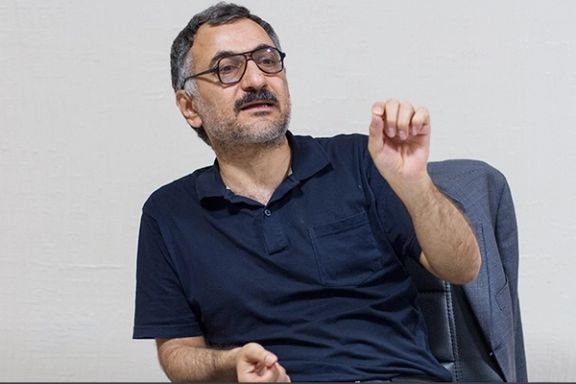
A report by the Financial Times earlier this month cited political economy analyst Saeed Laylaz as saying that, “it seems the Statistical Centre of Iran was not allowed by higher authorities to publish the inflation rate to avoid admitting that this government has broken the country’s record. The fact is that the government has not been able to curb inflation.”
Analysts noted it would be unusual to apply such a change before the year had ended. The inflation rate earlier announced by the two main sources without putting into account the last month of the Iranian calendar, Esfand – which falls in late March -- was more than the new figure.
Considering the fact that inflation in the month was even more than the average, it seems illogical that the annual average can be lower than the 46.5-percent inflation that was announced.
The Islamic Republic's authorities are trying to use new definitions and indices for the inflation so that the official figures do not increase to numbers that can create panic in the market. The country’s economy has proven especially vulnerable to sociopolitical developments, such as rumors about a possible revival of the nuclear deal or large labor strikes.
Typically associated with socio-political upheaval, a collapse in aggregate supply of needed commodities, or obstacles in exports, Iran’s hyperinflation can be a product of a bevy of disasters facing the government. As the Central Bank prints yet more money, the crisis deepens.
It is the second time Iran recorded such a figure since World War II. Considering the devaluation of the rial from 260,000 against one dollar to about 540,000 in the past year, the inflation rate is expected to hit new highs in the coming months.
The record high in the inflation rate has prompted pundits to foresee hyperinflation for the country this year, which in turn would further erode the value of the rial while seeing an intolerable spike in the cost of living. Food prices have already jumped 70-100 percent in recent months and this upward trend will likely result in people withdrawing their money and investments hooked on local currency and switch to more stable assets.
British-Iranian economist Mohammad Hashem Pesaran, a former professor at the Faculty of Economics at the University of Cambridge, warns that the current unstoppable decline in the value of the national currency and haphazard policies of the government is very likely to trigger mass hyperinflation in Iran.
Even though Iran has one of the world’s largest, and most untapped, sources of oil and gas, Iran would need oil priced at $351.7 a barrel to balance its budget next year, the International Monetary Fund (IMF) said in its latest report released late last month.
In his New Year speech on March 21, Supreme Leader Ali Khamenei dubbed the new year as “the year of bringing inflation under control”, a promise also repeated by President Ebrahim Raisi, but as the country plunges deeper into recession, remains nothing more than words.
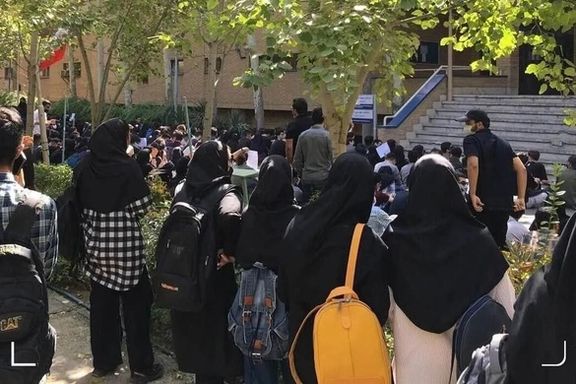
Over 2,000 students at Iran’s Tabriz University signed a petition against the regime’s punishment of students as it continues to quash dissent.
Over 2,000 students at Iran’s Tabriz University signed a petition against the regime’s punishment of students as it continues to quash dissent.
The protesting students at Tabriz University of Medical Science emphasized the right to freedom of expression and assembly.
"The students … must not be threatened, suspended, or exiled,” read the petition, with many students found supporting protests banned from classes and dormitories as the regime tries to suppress dissent.
Addressing the university officials and the disciplinary councils, the Tabriz University students said: "You have no right to silence and oppress the students with coercive measures and adverse rulings.”
According to the US-based Human Rights Activists News Agency (HRANA), 637 students from 144 universities have been arrested since mid-September, students at the forefront of the unrest sparked in September by the death in custody of Mahsa Amini.
Universities have been the center of several large anti-regime demonstrations with some sources inside Iran claiming that the number of detained students is more than 700.
A few days ago, the students of six universities wrote a statement condemning the government's misuse of psychological methods to suppress protests.
Earlier, Iran’s Student Union Council said 435 students have been suspended or expelled following the recent protests across the country.
In a statement on April 12, the Council stated that "a significant number of students have received suspension and expulsion orders through an illegal process."
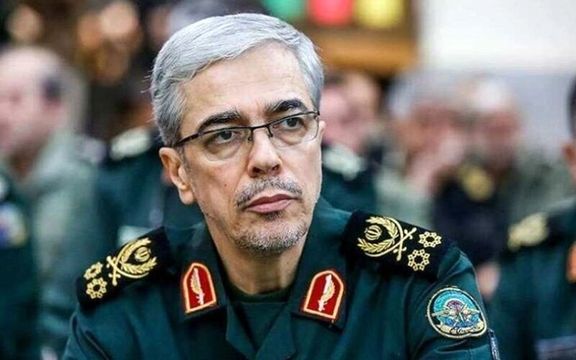
The chairman of the chiefs of staff of the Iranian armed forces claims the balance of power has shifted from West to East, away from its archenemy the US.
Brigadier General Mohammad Baqeri, who headed a top military delegation to Muscat at the request of his Omani counterpart, said Monday that in recent years, the region has been “the scene of swordplay by the Americans, who tried to impose themselves as absolute rulers on the world and the region.”
Baqeri stated that regional collaboration outweighs Western influence. “We are all in the same region and therefore we understand our interests better than others. We believe that regional security can be ensured by the solidarity of the regional states,” he said.
Iranian officials have been bragging over “new regional developments” and a “new order” after restoration of diplomatic relations with Saudi Arabia in March.
Regime officials and its ideological gurus have been making the most of the agreement being a US strategic defeat because Riyadh agreed to the deal with China’s tutelage, excluding Washington.
However, hardliners are praising Supreme Leader Ali Khamenei’s “wisdom” in predicting a decline of the American world order, citing the Chinese-sponsored agreement with Saudi Arabia.
After years of hostility that fueled conflicts across the Middle East, Tehran and Riyadh agreed to end their diplomatic rift and re-open embassies in a major deal.
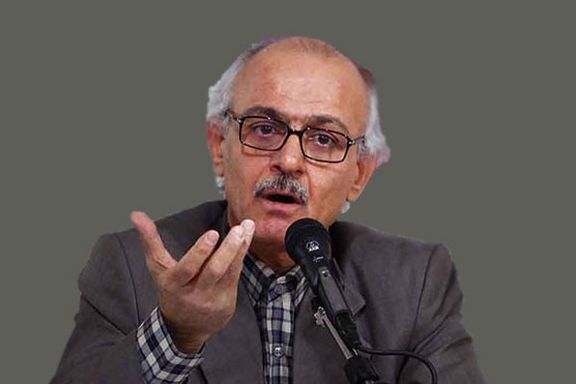
Iran’s security agents searched the house of historian and university professor Hashem Aghajari before summoning him to court.
The agents ransacked the home on Sunday in spite of his not being there, ignoring pleas from his wife and daughter to wait until his return.
Aghajari, considered one of the political figures close to the Green Movement leader Mir-Hossein Mousavi, was among the speakers of the "Dialogue to save Iran" conference, which was held virtually two weeks ago on the Clubhouse platform. He signed Mousavi's last statement which called to end clerical rule in Iran.
When the university professor returned home, the agents of the ministry of intelligence seized his laptop and other electronic devices, telling him that he should appear in the Revolutionary Court on Wednesday.
It is likely he will be charged with threats to state security for his role in revolutionary activity. At the recent conference, the group’s statement made bold calls for the end of the regime and called for a referendum in what it says is the only way forward, “allowing the people to decide their own destiny”.
He is an all too familiar figure to the regime. In 2002, Aghajari was sentenced to death for apostasy after a speech he gave on Islam urging Iranians to "not blindly follow" Islamic clerics. In 2004, after domestic Iranian and international outcry, his sentence was reduced to five years in prison.
Keyvan Samimi, Alireza Beheshti Shirazi, Abdollah Momeni, Qorban Behzadian-Nejad, Narges Mohammadi and Alireza Hosseini Beheshti were among the other activist speakers of the online conference who were since summoned, arrested, or prosecuted.